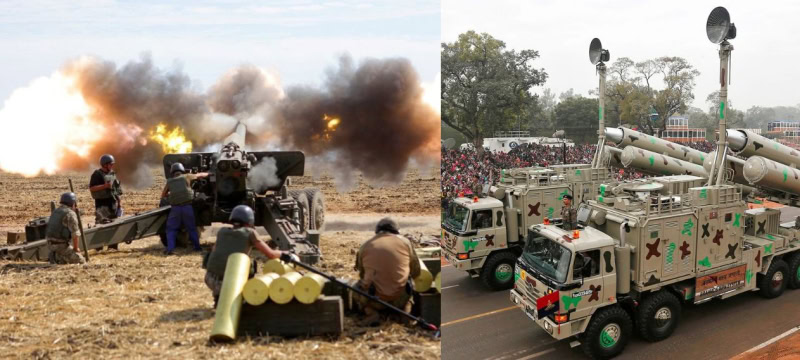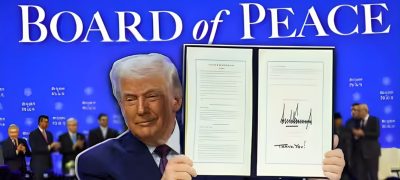Artillery shells from Indian arms manufacturers have been redirected by European buyers to Ukraine, with New Delhi not intervening despite Moscow’s protests, according to eleven Indian and European government and defense industry officials and a Reuters analysis of customs data. The transfer of munitions to bolster Ukraine’s defense against Russia has been ongoing for over a year.
Indian arms export regulations restrict weapon use to the declared purchaser, risking future sales if unauthorized transfers occur. The Kremlin has raised concerns on multiple occasions, including a meeting in July between Russian Foreign Minister Sergei Lavrov and his Indian counterpart, as reported by three Indian officials.
Read more: Ukraine’s “Dragon Drones” Unleash Molten Metal on Russian Military positions.
This is the first time details of the ammunition transfers have been disclosed by Reuters. Both the foreign and defense ministries of Russia and India did not respond to inquiries. In January, Indian foreign ministry spokesperson Randhir Jaiswal stated that India had not sent or sold artillery shells to Ukraine.
Sources from the Indian government and defense industry indicated that India produces only a small fraction of the ammunition used by Ukraine, estimated to be under 1% of Kyiv’s total arms imports since the war began. It remains unclear if the munitions were resold or donated to Ukraine by European customers.
European countries like Italy and the Czech Republic have been involved in sending Indian munitions to Ukraine, with the Czech Republic leading an initiative to provide Kyiv with artillery shells from outside the EU. An Indian official mentioned that Delhi is monitoring the situation but has not acted to limit supplies to Europe. Most sources spoke anonymously due to the sensitive nature of the issue.
Despite having strong ties with Russia, India views the prolonged conflict in Europe as a chance to develop its emerging arms export sector. Ukraine is currently facing a severe shortage of artillery ammunition amid ongoing Russian offensives.
The White House declined to comment, and the U.S. State Department referred inquiries about India’s arms exports to the Indian government. Between 2018 and 2023, India exported over $3 billion in arms, with Defense Minister Rajnath Singh announcing that defense exports exceeded $2.5 billion in the last fiscal year, aiming for $6 billion by 2029.
Customs records reveal that before the February 2022 invasion, major Indian ammunition manufacturers exported just $2.8 million in munitions components to Italy, the Czech Republic, Spain, and Slovenia. This figure surged to $135.25 million between February 2022 and July 2024, including complete munitions.
Arzan Tarapore, a defense expert at Stanford University, noted that India’s push to expand arms exports is a significant factor behind the transfer of its arms to Ukraine, suggesting that recent growth may have led to instances of end-user violations.
Discreet Deliveries
Unlisted Italian defense contractor Meccanica per l’Elettronica e Servomeccanismi (MES) has been identified as one of the companies receiving Indian-made shells for Ukraine, according to a former top official from Yantra India. MES is Yantra’s largest foreign client, purchasing empty shells from India to fill with explosives.
While several Western companies possess explosive filling capabilities, they lack the manufacturing capacity to mass-produce artillery shells, the executive noted. Yantra mentioned in its 2022-23 annual report that it had reached an agreement with an unnamed Italian client to establish a production line for L15A1 shells, which the former official confirmed as MES.
Neither MES nor Yantra India responded to requests for comment. Customs data reveal that Yantra shipped $35 million worth of empty 155mm L15A1 shells to MES from February 2022 to July 2024. Additionally, records show that in February 2024, U.K.-based arms company Dince Hill—whose board includes a senior MES executive—exported $6.7 million in ammunition from Italy to Ukraine, including 155mm L15A1 shells identified as manufactured by MES for Ukraine’s Defense Ministry.
Dince Hill did not reply to a request for comment, and its new owner, Effequattro Consulting based in Rome, was unavailable for contact.
In another case, Spain’s Transport Minister Oscar Puente shared an end-user agreement on social media in May, which was signed by a Czech defense official and authorized the transfer of 120mm and 125mm ammunition shells from Munitions India to Czech Defence Systems, an arms dealer. Pro-Palestinian activists had claimed that the vessel Borkum, carrying Indian-made arms that stopped in a Spanish port, was destined for Israel, but Spanish newspaper El Mundo later reported that its actual destination was Ukraine. A Spanish official and another source confirmed to Reuters that Kyiv was indeed the end user. Munitions India and CDS did not respond to inquiries.
Customs records dated March 27 indicate that Munitions India shipped 10,000 rounds of 120mm and 125mm mortar shells, valued at over $9 million, from Chennai to CDS.
Friendly Fire:
Russia, which accounts for over 60% of India’s arms imports, is a key partner for New Delhi. In July, Prime Minister Modi chose Moscow for his first bilateral international trip following his re-election to a third term.
During a meeting that same month in Kazakhstan, Russian Foreign Minister Sergei Lavrov raised concerns with Indian diplomat Subrahmanyam Jaishankar about Indian munitions being used by Ukrainian forces, noting that some were produced by state-owned Indian companies, as reported by an Indian official familiar with the discussion. The official did not disclose Jaishankar’s response.
Walter Ladwig, a South Asia security expert at King’s College London, remarked that the diversion of a relatively small amount of ammunition serves geopolitical interests for India. He stated, “It allows India to demonstrate to Western partners that it is not ‘on Russia’s side’ in the Russia-Ukraine conflict,” emphasizing that Moscow has limited influence over India’s decisions.









